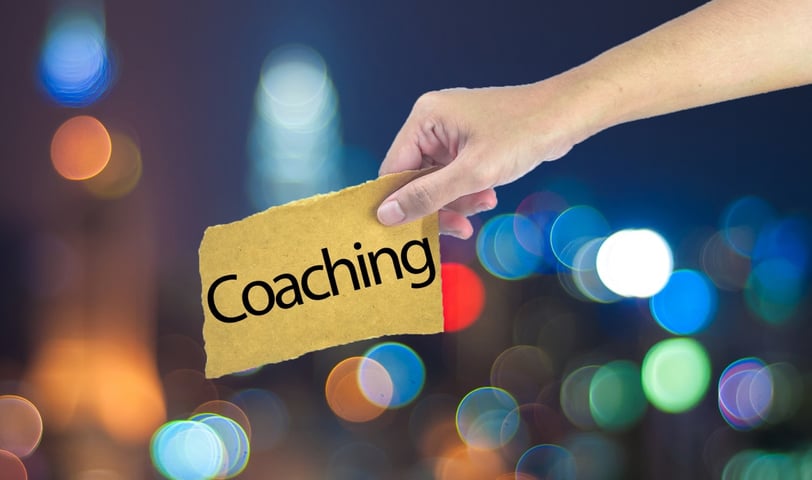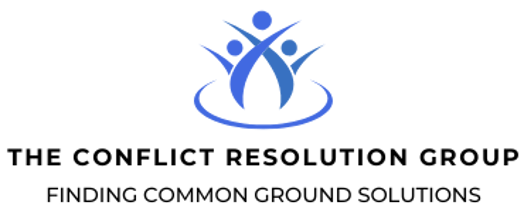Empowering Growth Through Conflict Coaching: Reactive and Proactive Paths
Conflict is an unavoidable part of life. Disagreements and misunderstandings arise in personal relationships, workplaces, and even in how we manage priorities and decisions. How we handle these challenges shapes both the outcomes and our personal growth. Conflict coaching empowers individuals to handle challenges with confidence and clarity. People often seek coaching to address immediate conflicts or to proactively develop better conflict resolution skills. Let’s explore these two paths.
COACHING
Sam Wales, C.Med, WFA, CPC
3 min read


The Responsive Path: Addressing Current Conflicts
When conflict arises, it can be challenging to respond thoughtfully and effectively. Whether you’re navigating a disagreement at work or facing tension in a personal relationship, conflict coaching helps you move from reacting emotionally to responding with intention. Let’s explore how coaching can help you take control and develop workable solutions.
How Conflict Coaching Helps in Responsive Situations
When conflicts are handled thoughtfully, even in situations that initially feel reactive, they can lead to long-term benefits. By shifting from emotional reactions to intentional responses, you not only resolve the immediate issue but also build skills that prepare you for future challenges.
Understanding the Conflict: We’ll dig into what’s really driving the tension—whether it’s misaligned expectations, poor communication, or different perspectives.
Identifying Your Strengths: You already have natural conflict-resolution tools—like empathy, deep listening, or problem-solving—that we can refine and apply more effectively.
Creating a Strategy: Together, we’ll develop an action plan to address the conflict. This could involve setting clear boundaries, improving communication, or finding common ground.
Example:
Sarah, a team leader, turned to conflict coaching when she noticed ongoing tension with a colleague was starting to impact her work. She realized she had been avoiding direct conversations because she was afraid of confrontation. Through coaching, she identified her strengths—such as her calm demeanor and her ability to communicate clearly in writing—and used those strengths to approach the situation with confidence. She also developed other conflict resolution skills, including assertiveness, managing emotions under pressure, and paraphrasing in tense conversations to ensure she fully understood the other person’s concerns. These skills have continued to help her manage workplace challenges effectively and foster better communication.
The Proactive Path: Strengthening Conflict Skills for the Future
Not everyone comes to coaching in the middle of a conflict. Some clients see it as a chance to grow and be better prepared for future challenges. You might relate to one of these thoughts:
"I’ve struggled with conflicts before and want to improve my approach moving forward."
"I tend to avoid conflict, and I want to develop the skills to face it head-on."
How Conflict Coaching Helps You Grow
Proactive coaching is all about building your confidence and equipping you with practical tools for the future:
Reflecting on Past Conflicts: We’ll review past situations to identify patterns, emotional triggers, and opportunities you might have missed.
Developing Self-Awareness: You’ll gain insights into your communication habits, decision-making, and boundary-setting through reflective exercises and targeted feedback.
Building a Toolkit: You’ll walk away with a personalized conflict-resolution guide tailored to your strengths and goals.
Example:
Alex, a new manager, came to coaching because he felt anxious during difficult conversations. By reflecting on past experiences, he realized that his discomfort came from a fear of disappointing others. Coaching helped him shift that mindset, practice assertive communication, and develop practical strategies for navigating tough discussions. Today, Alex feels much more confident handling challenging conversations.
Bridging the Two Paths
Responsive and proactive coaching often overlap. Someone might start coaching to resolve a current conflict but discover patterns they want to work on proactively. Similarly, those focusing on personal development may find that the skills they gain can help them handle immediate conflicts more effectively.
The Role of the Coach
As your coach, I act as a guide to help you gain clarity and grow. I won’t give you cookie-cutter solutions. Instead, I will help you:
Recognize your natural strengths and how to use them.
Reflect on your emotional responses and identify triggers.
Develop practical strategies that fit your unique values and goals.
This process empowers you to take ownership of your conflict resolution journey and approach challenges with greater confidence.
Which Path Is Right for You?
Whether you’re in the middle of a conflict or want to improve your conflict management skills for the future, coaching can help you:
Handle difficult situations with more clarity and confidence.
Break free from unhelpful patterns.
Build healthier, more supportive relationships.
If you’re ready to explore conflict coaching, let’s connect.
Together, we can turn conflict into an opportunity for growth and positive change.
The Conflict Resolution Group
Email: info@ConflictResolutionGroup.com
© 2025. The Conflict Resolution Group. All rights reserved.
Transforming Conflict into Growth and Understanding
Phone: 1-888-444-6171 (Canada and USA)
Mailing Address:
20041-9200 Dufferin St.
Vaughan, Ontario, Canada L4K 0C8
